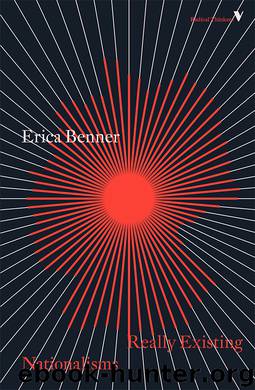Really Existing Nationalisms by Erica Benner

Author:Erica Benner
Language: eng
Format: epub
Publisher: Penguin Random House LLC (Publisher Services)
4.2. CRITERION 1: INTERNATIONAL RECIPROCITY
Formulating a first criterion in 1848, Engels came close to endorsing a general principle of international reciprocity as the sine qua non of any successful revolutionary effort. In a speech on Poland delivered on the same occasion as Marx’s, Engels began to develop the implications of his colleague’s assertion that ‘existing property relations’ encourage the exploitation of one nation by another. The crucial sentence in Engels’ speech was simply: ‘A nation cannot be free and at the same time continue to oppress other nations.’15 This was not a cynical attempt to win popular support by using the language of conventional morality. It was a prudential argument, appealing to the self-interest of liberal and democratic reformers in the oppressing states, for renouncing policies that thwarted the desire of other nations for freedom.
Engels’ precept echoes Marx’s early argument that there may be more than a conceptual affinity between two distinct forms of ‘national’ freedom: the formal ‘sovereignty’ conferred by independence from unwanted foreign rule, and the freedom demanded by popular conceptions of the nation from coercive or unresponsive government. In 1848–9 Marx and Engels repeatedly argued that national oppression provides a powerful prop to reactionary and exploitative regimes, chiefly by mooring them in an international network of supportive alliances. Since the extensive reach of that network thwarts local efforts to combat oppression in both its national and domestic forms, the success of such efforts depends on the formation of counter-alliances across national boundaries. And since opposition movements in the oppressed nations were understandably wary of cooperating with their counterparts in oppressing countries, it was a matter of utmost urgency that the latter commit themselves to a policy aimed at ending past oppression.
Marx and Engels elaborated this reciprocity criterion after the liberal revolutions of 1848 opened heated parliamentary debates about Germany’s traditional, hegemonic relations with neighbouring countries. The Prussian government continued to participate in expansionary wars against national movements in Poland, Bohemia, and Italy, often with the approval of the Frankfurt parliament. Marx railed against the hypocrisy of German liberals and democrats who acquiesced in their governments’ renewed acts of national oppression ‘at the same moment that they are struggling with these same governments to obtain freedom at home!’16 As chief foreign policy analyst for the NRZ, Engels developed a more carefully reasoned case for treating the freedom of other nations as a condition for freedom within one’s own. He began by trying to persuade his compatriots that their failure to support the aspirations of oppressed nations would damage prospects of reform in Germany itself. Opposing the arguments of Frankfurt delegates who wanted to incorporate the insurgent Polish province of Posen (now Poznań) in a united Germany, Engels pointed out three likely consequences of such a measure that would undermine attempts to create a strong, unified, and liberal German state. In the first place, it would inflame national hostilities in Poland to a point of no return, creating a persistent source of conflict that would impede efforts to stabilize a central German government.
Download
This site does not store any files on its server. We only index and link to content provided by other sites. Please contact the content providers to delete copyright contents if any and email us, we'll remove relevant links or contents immediately.
| Anthropology | Archaeology |
| Philosophy | Politics & Government |
| Social Sciences | Sociology |
| Women's Studies |
The Secret History by Donna Tartt(16611)
The Social Justice Warrior Handbook by Lisa De Pasquale(11486)
Thirteen Reasons Why by Jay Asher(7783)
This Is How You Lose Her by Junot Diaz(5755)
Weapons of Math Destruction by Cathy O'Neil(5032)
Zero to One by Peter Thiel(4818)
The Myth of the Strong Leader by Archie Brown(4787)
Promise Me, Dad by Joe Biden(4441)
Stone's Rules by Roger Stone(4413)
Beartown by Fredrik Backman(4406)
How Democracies Die by Steven Levitsky & Daniel Ziblatt(4393)
The Fire Next Time by James Baldwin(4338)
100 Deadly Skills by Clint Emerson(4072)
A Higher Loyalty: Truth, Lies, and Leadership by James Comey(4028)
Rise and Kill First by Ronen Bergman(4009)
The David Icke Guide to the Global Conspiracy (and how to end it) by David Icke(3876)
The Farm by Tom Rob Smith(3870)
Secrecy World by Jake Bernstein(3774)
The Doomsday Machine by Daniel Ellsberg(3726)
